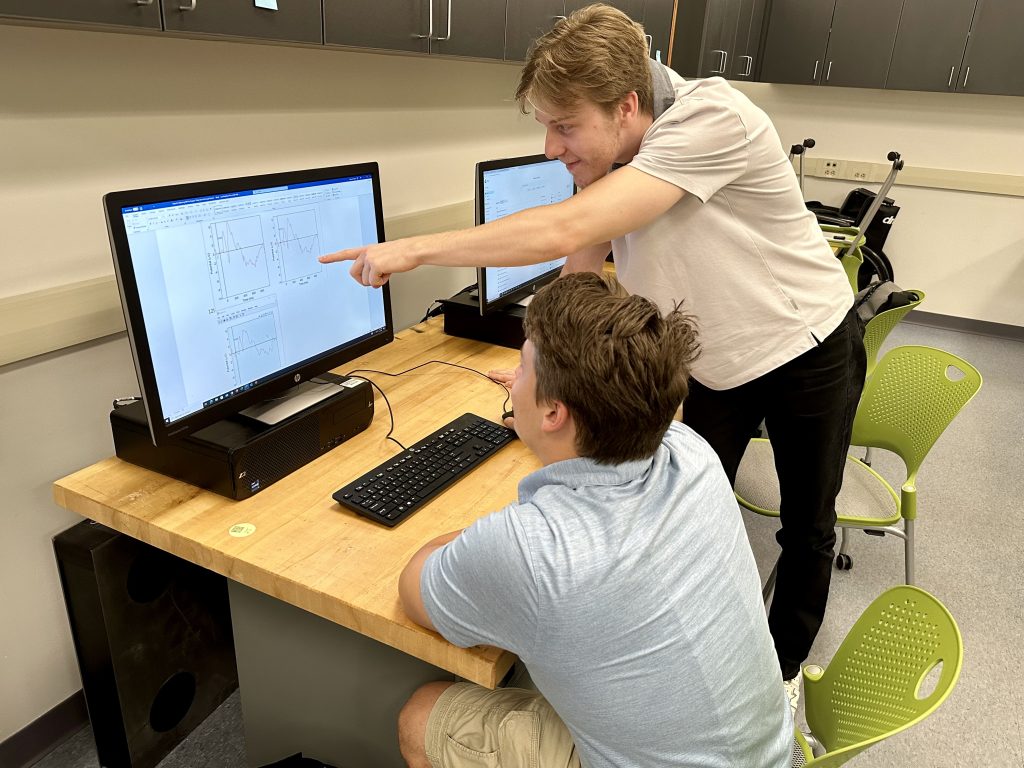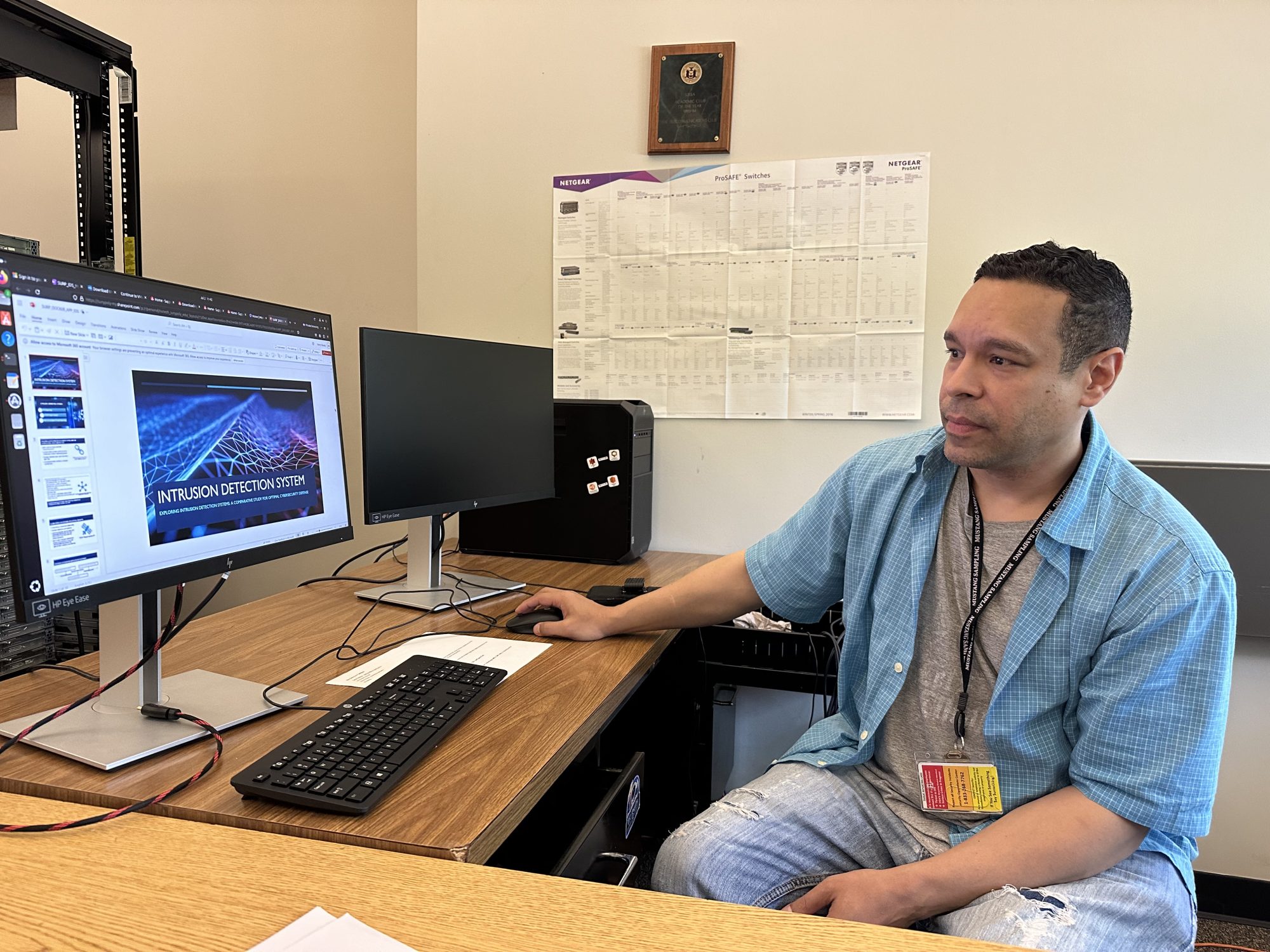Standing at the counter of a Donovan Hall Bio Lab, Amna Khan eagerly waits for faculty mentor Dr. Margarita Orlova to prepare a field-realistic pesticide solution to document its effects on pollinator cognition and health. Khan is one of three students doing separate bee-related projects with Dr. Orlova as part of SUNY Poly’s 10-week Summer Undergraduate Research Program (SURP).
“What I enjoy the most about research is that you have a lot more freedom and can work at your own pace,” Khan explains. “If there is something I am interested in, Dr. Orlova is very generous about allowing us to explore it.”
Khan’s specific project looks at the defensive behavior of bees, seeing how they’ll react if an intruder is introduced to their hive, as well as how that behavior towards the intruder is different when there is a valuable item for them to protect, such as pupa.
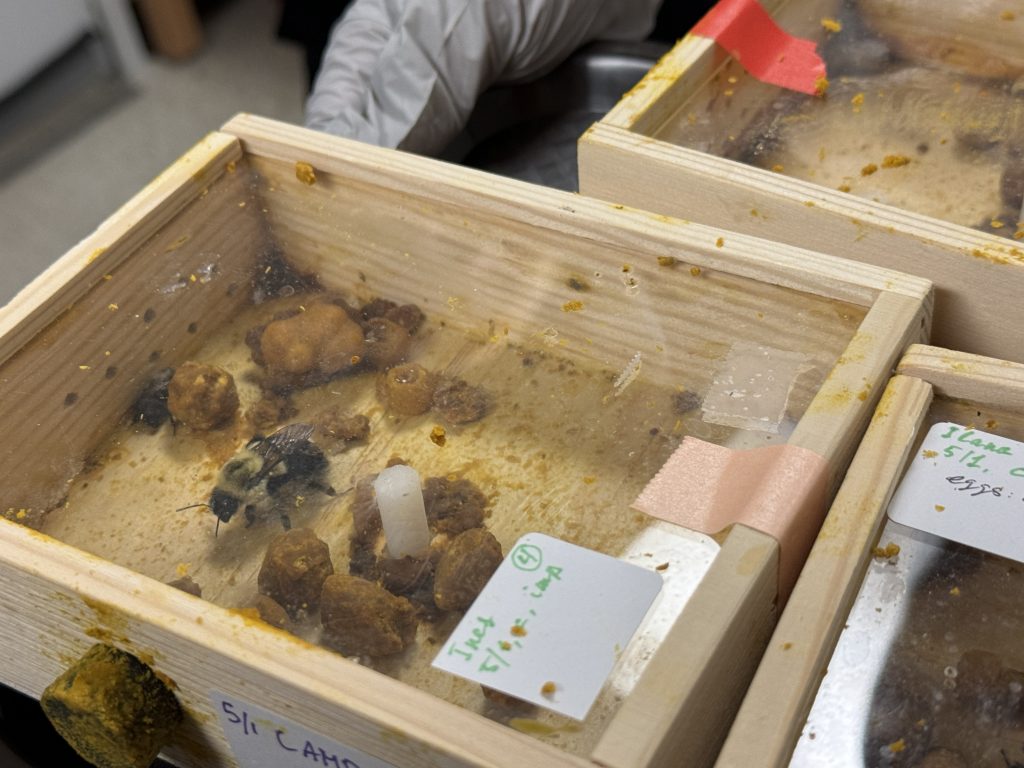
In general, SURP pairs qualified undergraduate students with faculty mentors, providing the opportunity to conduct research across a range of disciplines from artificial intelligence (AI), cybersecurity, biology, physics, sociology, engineering, etc. The program, generously supported by the SUNY Chancellor’s Summer Research Excellence Fund, SUNY Poly Provost Office, State monies and industry partners, allows students to engage in an innovative hands-on experience. In 2024, a record 33 students are participating in the program.
“Through SURP, students are exposed to each phase of the research process,” Dr. Rebecca Weldon, SURP Chair, explains. “This includes coming up with ideas, reading literature by peers who have worked in that respective field, and learning new techniques in the lab. This experience also allows students to identify if research is an area they’d like to further explore, with it serving as the catalyst of many participants’ decisions to look into graduate opportunities once they’ve completed their undergraduate degrees.”
“The program also teaches students that research is supposed to be a challenging and sometimes frustrating process,” SURP Vice Chair Dr. Asif Ahmed adds. “It is not supposed to be easy, but using the skills they acquire during the program, and putting the tools they’ve learned in the classroom to the test in an independent environment to tackle project goals, can be an incredibly rewarding experience.”
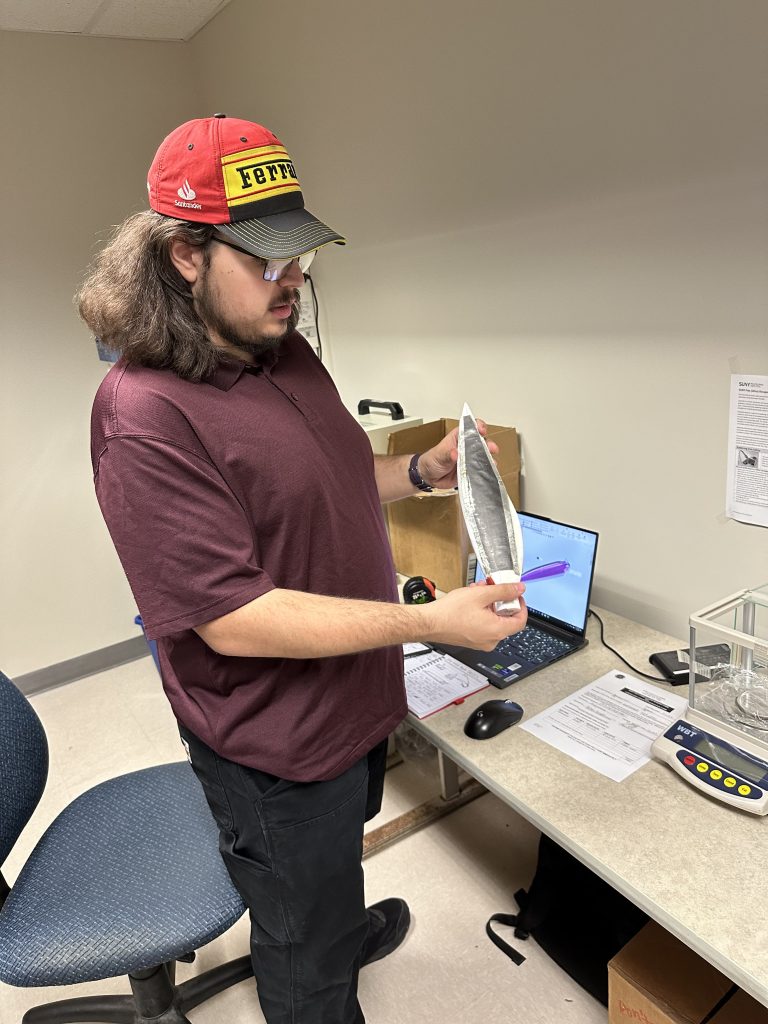
Rising senior Josh Archanian, who is working with Dr. Ahmed Abdelaal on a project that seeks deicing solutions for wind turbine blades, says it is important to have a creative mindset when conducting research.
“A lot of research papers are theoretical, but there isn’t always a lot out there about application,” he explains. “You don’t want to repeat what’s already been done, instead you have to come up with new and cost-effective applications.”
Drs. Arjun Singh and Priyangshu Sen are working with a handful of students, overseeing significant communications research and exploring the next generation of 6G data.
David Stark, who is paired with Dr. Sen, has learned a lot through the hands-on experience SURP provides. While maybe not as exciting as that hands-on communication work, he also understands the importance of “reading grad papers to understand material,” learning from the foundations that have been set in one’s respective research field.
Dr. Sen’s research students are working with Terahertz (THz) channel design, while Dr. Singh’s students are working on characterization of their recently established advanced communications testbed in Kunsela Hall, providing the students with enhanced understanding and experience in THz communication technologies.
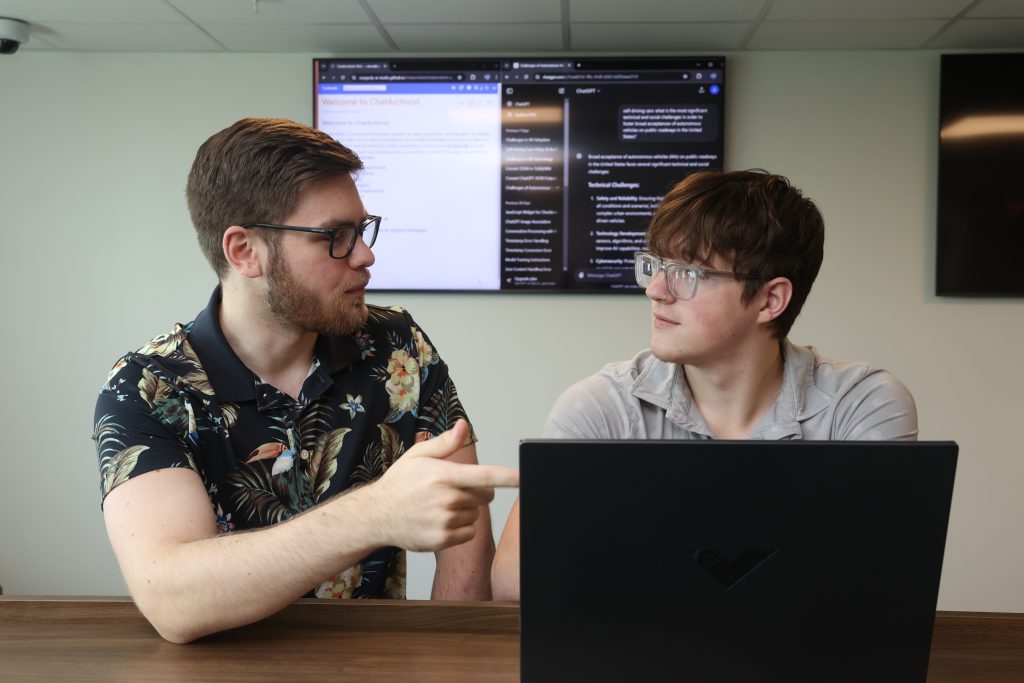
Andrew Hamm and Joseph Nissen are paired with Dr. Steven Schneider on a project centered around AI. More specifically, they’re developing software to document how people interact with generative AI tools, and fosters systematic analysis of their interactions, laying the groundwork for responsible and insightful AI use.
“It’s cool to be in an innovative space doing research that intrigues you,” Hamm notes, “and to be able to create something that will help humanity.”
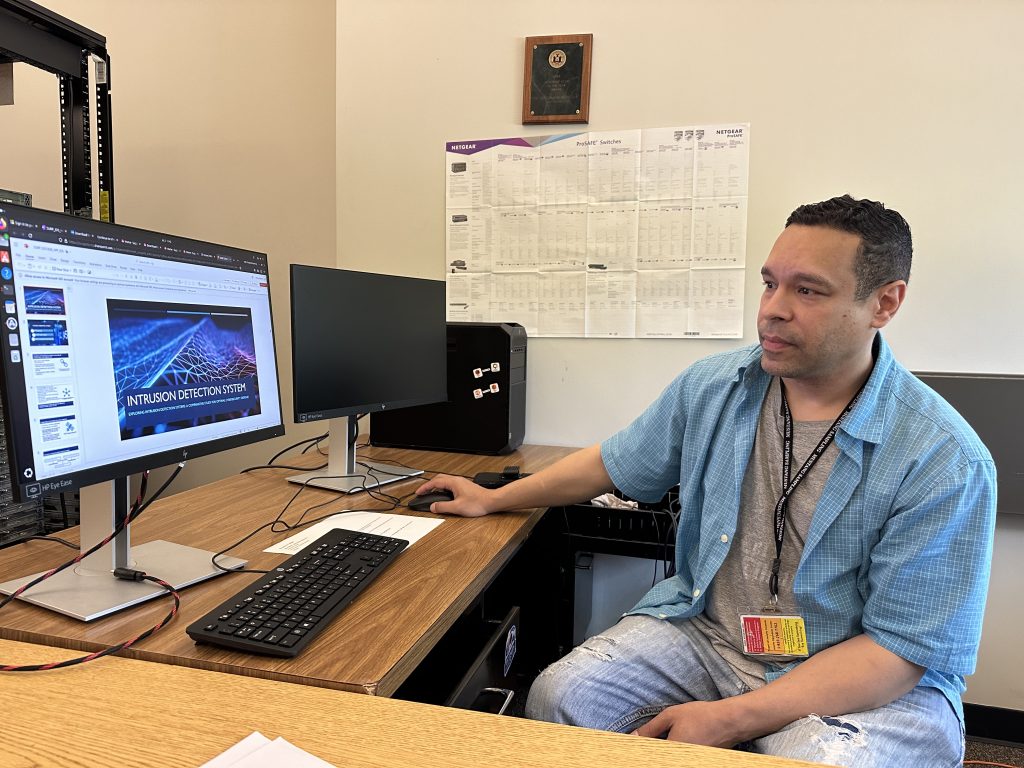
Henry Nunez’s SURP project has him teamed up with Dr. Zahid Akhtar, in evaluating and comparing Intrusion Detection Systems (IDS) to identify their strengths, weaknesses, and effectiveness in detecting and mitigating cyber threats.
“SURP has been a fantastic experience,” Nunez says. “It has allowed me to learn new and evolving technologies, and deploy theoretical concepts into practice to meet workforce needs.”
SURP students will present their findings in a poster session at the conclusion of the program in early August. To learn more about SURP, click here.
